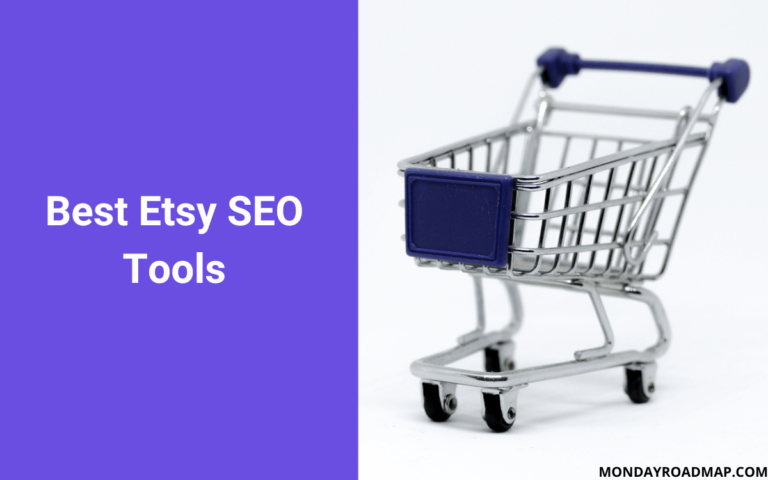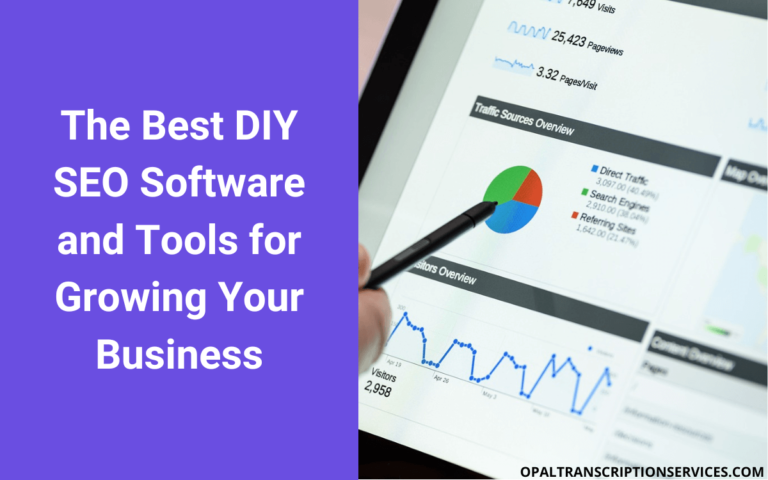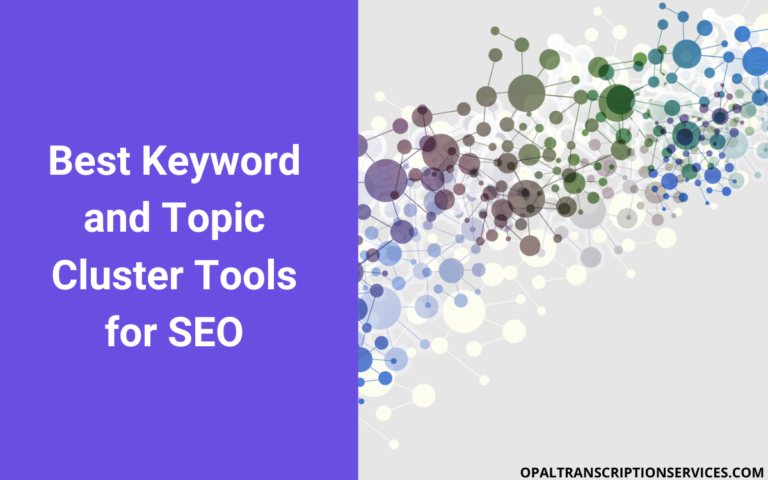10 Benefits of Link Building for SEO in 2023
Is link building still important for SEO in 2023? What are the benefits of link building for businesses, bloggers, and affiliate marketers?
Let’s start by acknowledging that one of the biggest myths in online marketing is that to generate traffic to your website, you simply need to create amazing content. The clear problem with this claim is that Google, not being human, can’t understand the difference between mediocre content and amazing content simply by “reading” it.
Instead, search engines rely on signals like keywords, user interaction, and links from other websites to determine a webpage’s relevance for a particular search query.
Which is to say that you can slave away on a blog post for 20+ hours and produce a witty, engaging, articulate, and useful piece of content, and when you hit publish, it’s banished to page 10 of the search results, and no one may see it – ever. It isn’t fair, but such is life.
So, if you want people to read the content you work so hard to produce, your goal should be to write with humans and search engine algorithms in mind.
And out of Google’s 200+ ranking factors, one of the most important has consistently been – and will very likely continue to be – the number of linking root domains – or, in other words, the number of other websites linking to your site.
Perhaps one reason why this ranking signal is given so much weight is because link building is hard work, dammit, which makes it much more difficult to influence than many other ranking factors.
But with commitment, stamina, and a little help from the top DIY SEO software tools, it can be done.
What is link building in SEO, and why does it matter?
Link building is a digital marketing technique where you earn, or “build,” links to your website from other websites to increase its authority in the eyes of search engine algorithms. The ultimate result is a boost in rankings, traffic, and revenue.
Some common link building tactics that still work today include guest posting, digital PR using free online platforms like HARO, and even indirect link exchanges.
Many businesses see link building as an outdated strategy, or misunderstand its benefits, or simply avoid doing it because it’s time consuming and difficult. But if you want your very own space in the increasingly competitive world of search, earning high-quality links is one of the surest paths forward.
Now that we’ve covered what link building is and why it’s important to businesses and marketers today, let’s look at 10 link building benefits.
Plus, if you’re just getting started with link building, you might be interested in checking out the following post: How long does it take to learn SEO?
Increase rankings and traffic
As noted above, because backlinks are such a heavily weighted factor in Google’s algorithm, the more quality links you acquire, the more your website will climb the ranks. The lovely result of your efforts will be a boost in traffic – both to your top-linked pages and to your website as a whole. And it’s not just any traffic – it’s free traffic!
And, if you’ve nailed the user intent for your target keywords, traffic from organic search tends to convert better than other sources (referral traffic from social media, for example).
A few links from high-authority, highly relevant sites are better than lots of links from low-quality, only-slightly-related sites.
You also want to focus on acquiring dofollow links, rather than nofollow links, which don’t pass “link juice.” While both types of backlinks are important for a diversified link profile, you’ll acquire plenty of nofollow links naturally from sources like social media (and also from those weird Russian spam sites cluttering your GSC “Latest Links” report – what’s up with those, anyways?). So don’t knock yourself out trying to get them.
When prospecting for links, you can vet the quality of sites by installing a free Chrome extension like the Mozbar, which gives you Domain Authority and Page Authority metrics for the top 10 search results. I also like the free extension Strike Out Nofollow Links, which saves you the time of checking the HTML code to see whether a link is “followed.”
Remember that as the authority of a website or page linking to you increases, that link will pass more juice over time without you having to do any extra work. So, when you’re prospecting, it’s important to choose established, authoritative sites with lots of real traffic and engagement.
Build topical authority
In SEO, a site’s topical authority can be understood as a measure of how authoritative a site is on a given topic, based on how much content the site publishes about that topic, how it interlinks related articles, etc.
Google understands related topics through its Knowledge Graph, and when it determines a site is an authority on a specific topic – regardless of that domain’s overall strength – it will rank that site’s content higher than content from other sites it views as less authoritative on that topic.
This is why you often see spammy little niche sites with paltry authority metrics outranking your own website – and sometimes even outranking sites like TechRadar and PCMag – for money keywords.
So where does link building come into this?
In two primary ways:
1. The more external links you build from sites and articles within your own industry or niche (or a closely related industry or niche), the more likely your own content will rank highly in search.
This is because websites naturally tend to link to other sites in their own niche, and Google wants to see natural-looking links rather than links that suggest manipulation of its algorithm.
In fact, lots of links from completely unrelated sites won’t help your site much (at best) and can result in a penalty (at worst). So focus on building relevant links!
2. You can also increase your topical authority by writing and interlinking closely related articles on your site (called topic clusters).
Link Whisper is a great tool for making quick work of this tedious process.
Generate steady referral traffic
In marketing analytics, referral traffic is defined as visits to your site that come directly from another website – for instance, a user clicks on a hyperlinked mention of your company on Forbes.com and lands on your site.
In general, the referral traffic you generate from link building methods like guest posting will be lower overall than the traffic you generate directly from search results as a byproduct of those efforts (due to increased rankings).
That said, with a sustained effort over time – as long as you’re selective about the sites you target for outreach – you can generate a steady stream of referral traffic from tactics like digital PR and guest posting. (While you’re at it, you can milk your guest posts by adding calls to action in your author bio – for example, inviting readers to subscribe to your email list or follow you on social media.)
Besides relevant, engaged visitors, referral traffic has an additional benefit: It remains unaffected if your rankings tank in an algorithm update.
Get new content indexed faster
Sometimes you do everything right – write a great blog post, submit a fresh sitemap, and submit your URL to Search Console for indexing – and, days or weeks later, your post still hasn’t turned up in the Google index. It’s mega frustrating!
There are a few different types of links you can build to new content to help it get indexed faster:
- Internal links. Google has a harder time finding so-called orphaned content. So when you publish a new post, try to update a few of your old posts with internal links to the new post. Or use a tool like Link Whisper to automate the process.
- Social media links. Although these links are nofollow, Google has suggested that social platforms may be used to discover and index new pages. So while the jury’s still out on how much social media links really count for SEO, you have nothing to lose by sharing your content on your socials right after you publish it.
- External links. Links from other websites are the hardest to get, but they can really speed up indexing time.
Increase your site metrics
The more links you build to your site, the more its third-party SEO metrics (e.g., Moz Domain Authority, Ahrefs Domain Rating) will increase. The reason I say “third-party” is because – unlike Google PageRank, which is no longer publicly accessible – these metrics aren’t associated with Google in any way. Rather, they come from proprietary algorithms developed by third-party SEO tech companies.
In other words, they aren’t ranking factors, they don’t influence the SERPs in any way, and they should be taken with a grain of salt.
That said, they can be a good starting point for comparing one site to another and vetting websites for outreach.
When you increase your own site’s metrics, your site’s perceived value increases. This makes it more attractive to potential partners and buyers.
And, if you offer marketing consulting services, you can generate white label SEO reports detailing your clients’ website metrics and the impact your campaigns have had on them.
A few of the most important third-party SEO metrics to keep in mind are:
- Domain Authority (DA). Developed by Moz, Domain Authority is a search engine ranking score, based on a 100-point logarithmic scale, that predicts how likely a website is to rank. It takes dozens of factors into account, including the quantity and quality of linking root domains.
- Page Authority (PA). The correlate of Domain Authority, Page Authority predicts how likely an individual page is to rank. It’s computed using the same methodology used to calculate DA.
- Domain Rating (DR). Developed by Ahrefs, a website’s Domain Rating is a measure of the strength of its backlink profile on a 100-point logarithmic scale. It corresponds to Ahrefs Rank (AR). A higher DR score indicates a stronger backlink profile.
- URL Rating (UR). The correlate of Domain Rating, UR is similar to the Google PageRank metric of yore and, like DR, is based on a 100-point logarithmic scale. Internal and external links are both taken into consideration when calculating a site’s UR, though external links are given more weight. Only dofollow links can increase UR.
Boost authority and credibility
Up till now, we’ve focused on the algorithmic benefits of backlinks. But there are advantages in terms of digital PR as well.
When your brand appears on established, authoritative sites in your industry, you’re essentially siphoning off or “borrowing” some of their influence and credibility. Think about it – when a highly recognizable brand links to you, it’s like an endorsement in the eyes of your customers.
So, by contributing guest articles on big-name websites, small, unknown businesses and bloggers can get a foothold in the market right out of the gate.
You can also use free online PR services like HARO to contribute quotes to major media publications and blogs (and get a high-quality backlink in the process), which is far less costly than hiring a PR agency for thousands of dollars a month.
When you’ve collected a few notable mentions, you can showcase them on your press page or display the logos of the host publications in an “As Seen On” section on your site. This kind of social proof can have a powerful impact on website conversion rates.
Create partnership opportunities
Link building involves a lot of outreach – and, when done right, a lot of personalized outreach. Besides landing you guest post opportunities, this outreach can result in some very interesting and mutually beneficial opportunities. For instance:
- Indirect link exchanges
- Consulting opportunities
- Affiliate marketing opportunities
- Sponsored posts
- Social media shares
- Email newsletter swaps
- LinkedIn connections
- And anything else you and your contact might able to think of!
For example, in one instance I sent out an email inquiring about a guest post. Although my contact wasn’t currently publishing guest posts, it turned out they were interested in our audio transcription services, and I ended up interested in the app they were selling as well!
Speaking of partnerships, if you do a lot of guest posting, send me an email and let’s see if we can work together now or in the future. 😊
Enjoy more control over your marketing
In my opinion, this is one of the best and most underdiscussed benefits of link building.
For many of us in consulting, e-commerce, and what have you, there are certain product or service offerings that we love to sell, some that are just meh, and others that we dread being asked about.
The trouble with many marketing channels, such as social media or print advertisements, is that they tend to attract a random bag of clients looking for a hodgepodge of product or service offerings. In many cases, you won’t even know what particular product or service a potential client is after when they first contact you.
Link building offers a magical solution to this timeless marketing problem by letting you isolate your dream client: Simply focus on building links to your favorite or most profitable product or service pages, and who knows – maybe one day you’ll be able to phase out those dreaded projects entirely!
Get more conversions
Traffic from search tends to convert better than traffic from sources like social media.
It’s easy to see why this is the case: If someone searches Google for “best non-clump cat litter” and clicks on the top result, they’re actively shopping and ready to buy. Whereas, if someone is browsing Pinterest and clicks on a link to the same page, they might be interested in the topic, but it’s highly unlikely that they’re ready to buy the product.
Rank brand-new posts higher
This is one of my favorite benefits of link building. There are two types of link building you can use to can help your newly published posts rank higher:
1. External link building
The more other websites link to you, the more your site’s authority increases.
And the more your site’s authority increases, the higher your brand-new blog posts will rank in the SERPs – without even building any links to them.
And the higher your blog posts rank, the more they’ll begin to accumulate links naturally – without further effort on your part.
This is why a highly optimized blog post published on a brand-new website might be relegated to page 10 of the SERP, while a poorly optimized blog post on a more authoritative site goes straight to page 1 and keeps climbing.
TL;DR: The more links you build in the beginning, the less work you have to do later!
2. Internal link building
Don’t underestimate the power of a smart internal link building strategy, either: By interlinking closely related pages using relevant anchor text, you give Google important cues about the topic of your content. This can give it a quick boost in search without the hassle of building external links. You can use a tool like Link Whisper to do this quickly.
Another benefit of internal linking is that it increases user engagement and decreases bounce rate, which Google uses as a ranking signal.
Final thoughts
The benefits of link building have algorithmic impact as well as human impact, and both are important. But at the end of the day, it’s people who buy products and services. So for your SEO efforts to pay off, you need both quality links and quality content written for real humans, or your efforts will be in vain.






